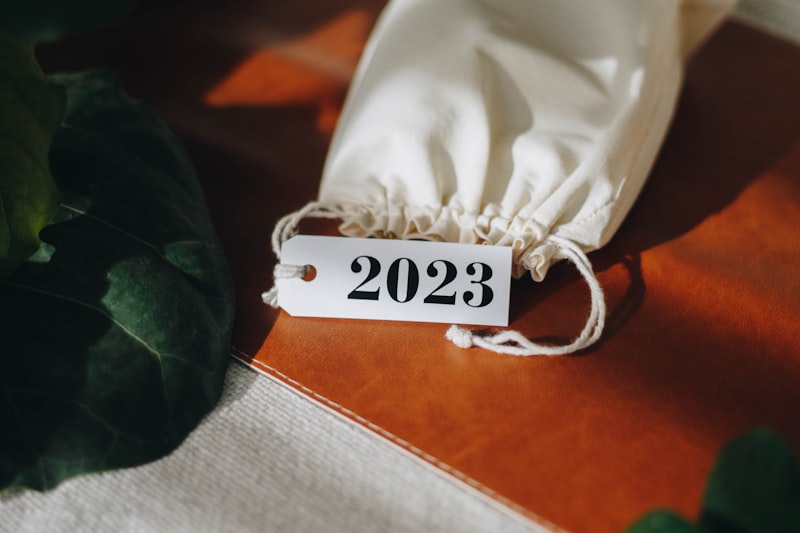Exploring Weddings and Personal Identity: A Celebration of Love and Self
Exploring Weddings and Personal Identity: A Celebration of Love and Self
Understanding the Intersection of Weddings and Personal Identity
Weddings are one of life's most significant milestones, marking not only a union between two individuals but also a celebration of their personal identities. As couples plan their special day, they weave together elements that reflect who they are, their backgrounds, and their values. This article delves into how weddings shape and express personal identity, exploring cultural significance, individual choices, and the evolving nature of marriage in contemporary society.
The Role of Cultural Background in Weddings
Culture plays a vital role in shaping personal identity, and this is particularly evident in weddings. Different cultures have unique traditions that influence how a wedding is celebrated. For instance, in Indian weddings, vibrant colors and elaborate rituals reflect cultural heritage, while Western weddings often emphasize white dresses and formal settings. Understanding these cultural aspects can provide insights into the personal identities of those involved.
| Culture | Wedding Traditions | Symbolism |
| Indian | Multi-day ceremonies, Sangeet | Unity and festivity |
| Western | White gowns, Church ceremonies | Purity and commitment |
| Chinese | Tea ceremonies, Red dresses | Respect and prosperity |
| Jewish | Chuppah, Seven blessings | Divine protection and joy |
Personal, Unique Touches
As couples plan their weddings, they often seek ways to make their ceremonies genuinely personal. This could range from customized vows to unique venues that reflect personal stories. In today's world, personalization is crucial; many couples choose to incorporate aspects of their lives that underscore who they are as a pair.

For example, a couple may decide to include elements from their respective cultures or even hobbies that define their relationship, such as an outdoor celebration for nature lovers or a music-themed wedding for avid concert-goers. This blending of ideas not only celebrates their love but also showcases their identities, making the event memorable for both the couple and the guests.
The Evolving Definitions of Identity in Marriage
The concept of personal identity has evolved significantly over the years, especially in the context of marriage. In many societies, traditional views of gender roles are being challenged and reconstructed. Today, marriages reflect a partnership model rather than a hierarchical structure.
Gender identities and sexual orientation also play an integral role in shaping how weddings are planned and celebrated. Increased acceptance of same-sex marriages reinforces the idea that weddings are not solely about one traditional norm but encompass diverse expressions of love and identity.
Weddings as a Reflection of Individual Identity
Weddings also provide individuals with a platform to express their self-identity. Fashion choices, artistic decorations, and the overall aesthetic of the ceremony can reveal much about the couple's personalities and values. Some couples opt for traditional attire, while others might choose modern, stylish looks that better fit their identities.
Moreover, the guest list can reflect individuals' values—inviting friends and family who support and uplift personal identity. The decision to have a small, intimate gathering versus a large, extravagant party often speaks to the couple's comfort level and what they prioritize in their relationships.
Weddings and Social Identity
In addition to personal identity, weddings can also intersect with social identities, such as race, socio-economic status, and community expectations. Couples may feel pressure to conform to societal norms, which can complicate their personal decisions. Navigating these dynamics is crucial for creating a wedding that feels authentic and fulfilling.
Balancing Tradition and Modernity
The challenge often lies in balancing traditional practices with modern preferences. It is vital for couples to have open discussions about which traditions are essential to them and how they wish to adapt or reinterpret them. Finding a middle ground can lead to a wedding that resonates with both their identities and the legacies they wish to honor.
Conclusion: Celebrating Weddings and Personal Identity
In conclusion, weddings are much more than mere ceremonies; they are profound celebrations of love and identity. From cultural elements to personal anecdotes, every wedding tells a story that reflects the couple's journey together. As society continues to evolve, the definition of identity also transforms, allowing for a richer tapestry of wedding experiences. Couples should embrace the opportunity to craft their unique narratives while being mindful of the traditions that have shaped them. Ultimately, the most successful weddings are those that authentically represent the couple's identities, offering insight into who they are while celebrating their union. As you plan your wedding, consider what truly reflects your journey together for a celebration that is unmistakably yours.
Key Takeaways: Weddings symbolize love and personal identity. Personalization enhances the uniqueness of the ceremony. Understanding cultural significance can enrich the wedding experience. Couples should balance tradition with modernity to reflect their journey authentically.
Suggestions: When planning your wedding, attempt to integrate elements that represent your unique identities. Don’t hesitate to discuss and negotiate traditions that matter to both partners. Remember that your wedding day is a celebration of your love story, so prioritize what feels right for you both.
